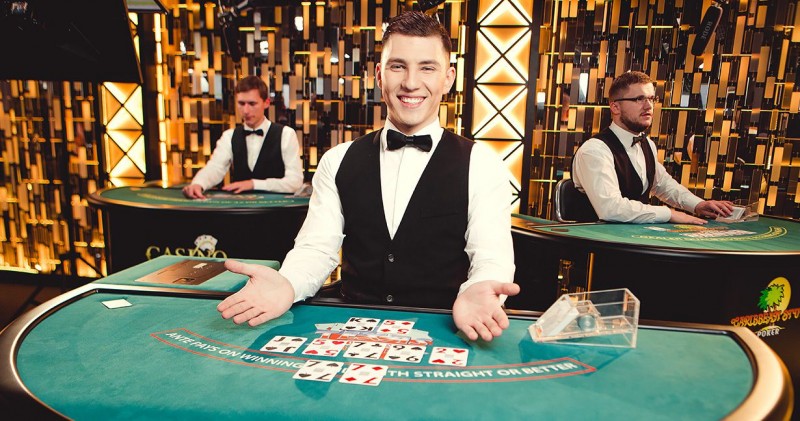[ad_1]
CARLA K. JOHNSON
Harold Lewis has struggled with drug addiction for years, but it wasn’t until recently that he began to think that recovery could be fun.
The 59-year-old former chef received small prizes – candies, chewing gum, gift cardssunglasses and headphones — for attending meetings and being treated Opioid addiction during a 12-week program in Bridgeport, Connecticut.
For more information on rehab in Melbourne check out The Hader Clinic
“Recovery should be fun because you’re getting your life back,” Lewis said.
For a growing number of Americans, addiction treatment involves not only hard work, but also receiving rewards — sometimes totaling $500 — for failing drug tests or showing up for counseling or group meetings.
The brain science behind this technique is known as contingency management. And barriers to wider adoption of rewards programs, such as government concerns about fraud, are beginning to break down.
“We’re in a state of desperation where we need to stop everything, and that’s what works,” said Dr. James Berry, who directs addiction medicine at West Virginia University.
During the pandemic, the number of overdose deaths in the United States has reached a record level. While opioids are largely to blame, deaths from stimulants like meth are also on the rise. Often people die with several drugs in their system.
Medications can help people stop abusing opioids, but there is no effective cure for stimulant addiction. Reward programs – especially when the dollar value increases with consistent performance – are widely recognized as the most effective treatment for people addicted to stimulants.
Since 2011, the US Department of Veterans Affairs has used this method with 5,700 veterans. Rewards are vouchers that vets redeem at their local canteen. Over the years, 92 percent of the urine tests taken by those veterans have come back negative for drugs, said Dominic DeFilippis of the VA’s Drug Abuse Program.
When done right, reward programs can be a bridge from the difficult days of early recovery to a better life, said Carla Rush, an associate professor of medicine at UConn Health who studies the method. It helps people make better decisions in the moment, tipping the scales when it’s hard to resist the immediate benefits of drug use.
Awards can “provide a little bit of recognition for people’s efforts,” Rush said.
For Casey Thompson, 41, of Colville, Washington, the first month after quitting meth was the worst. Without stimulants, he felt burned out and exhausted.
“Even standing up, you could fall asleep,” Thompson said.
Earning gift cards for passing drug tests helped, he said. During his 12-week program, he received about $500 in Walmart gift cards, which he spent on food, shirts, socks and shampoo. He is a welder by training and is looking for work after a recent layoff.
“I’m a completely different person than I was,” Thompson said. “I was already planning on being clean, so this was just extra.”
More than 150 studies conducted over 30 years have shown that rewards work better than counseling alone for addictions, including cocaine, alcohol, tobacco and, when used with medications, opioids.
The method is based on brain science. Psychologists have known for years that people who prefer small immediate rewards to larger delayed ones are vulnerable to addiction. They may promise to quit smoking every morning and start using again in the afternoon.
And neuroscientists have learned from imaging studies how addiction hijacks the brain’s reward center, hijacking dopamine pathways and robbing people of the ability to enjoy simple pleasures.
“Much of the same dopamine reward system that is the basis for addictions is used to promote healthy behavior change,” said University of Vermont psychologist Stephen Higgins, who pioneered the method in 1991. Its recent research shows that it helps pregnant women quit smoking and improves the health of their newborns.
“Biologically, substance use lights up the same part of the brain that lights up when a person wins the lottery, falls in love, or experiences something really positive and exciting,” said psychologist Sarah Becker of Northwestern University.
The same path is lit when someone wins an award.
“That’s part of what’s powerful about these programs,” Becker said.
Support has never been stronger. The Biden administration supports this method in the National Drug Control Strategy. California will launch a pilot program this fall designed to reward $10 gift cards for passing stimulant drug tests. Oregon will use tax revenue from the state’s legal marijuana industry to pay for similar incentives. Montana launched the program in March using a federal grant.
The U.S. Department of Health and Human Services is working to revise its guidelines for how much government grants can be spent on prizes, awards and cash cards. Researchers say the current cap of $75 per patient is arbitrary and ineffective and should be raised to $599.
The method “is a widely studied and tested intervention that successfully treats people with various use of psychoactive substances disorders,” said Dr. Ingwild K. Olsen, who directs the US government’s Center for Addiction Treatment.
Rewards programs can be low-tech — slips of paper pulled from a fish bowl — or high-tech — using “smart” debit cards programmed so they can’t be spent at liquor stores or converted to cash at an ATM.
Maureen Walsh is a 54-year-old flower shop owner in Philadelphia who is staying off opioids with the DynamiCare smartphone app. When she passes a saliva test, she earns money on a smart card. She uses the money to treat herself to a new pair of shoes or donate to a cause she loves.
“The reward for me was that I was clean and the test showed that,” Walsh said.
For Lewis, a Connecticut man in opioid recovery, the weekly prize drawing was a way to bring home gifts for his mother.
“The prizes make me feel good,” he said. “But the prizes make my mother feel great. I say Tony the Tiger is BIG!”
On a recent summer afternoon, Lewis earned a chance to draw 10 letters — 10 chances to win prizes, including a tablet computer. The big prize didn’t go to him, but he won six small prizes and $20 gift cards.
“Recovery isn’t all about clenched fists and gritted teeth, you know what I mean?” Lewis said later. “It can be fun when you can exhale, you can breathe and be excited because you don’t know what you’re going to win today.”
© 2022 The Associated Press. All rights reserved. This material may not be published, broadcast, copied or distributed without permission.
Citation: Candy, Cash, Gifts: How Rewards Help Break Addiction (2022, September 7) Retrieved September 7, 2022, from https://medicalxpress.com/news/2022-09-candy-cash-gifts-rewards -recovery.html
This document is subject to copyright. Except in good faith for the purpose of private study or research, no part may be reproduced without written permission. The content is provided for informational purposes only.







)
